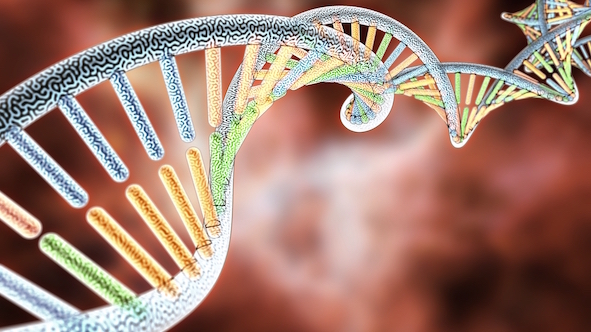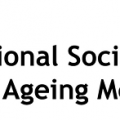Precision medicine is a ray of hope and innovation in the rapidly changing healthcare scene. This method of treating patients offers the possibility of customizing therapies depending on each patient’s genetic makeup, lifestyle, and environmental circumstances. A new era of personalized healthcare is being ushered in as a considerable shift from the conventional one-size-fits-all model is marked. The complexities of precision medicine, its applications, difficulties, and the promising future it offers for healthcare will all be covered in this blog.

Understanding the Basics of Precision Medicine
Genomics and Genetics
Genomic and genetic research are fundamental to precision medicine. When the Human Genome Project was finished in 2003, it marked a significant turning point in our knowledge of the human genetic code. It opened the door for personalized therapy by revealing the astounding diversity and complexity of our genomes. Disease susceptibility and treatment response can be significantly influenced by genetic variations between people.
Personalized Medicine vs. Precision Medicine
Despite the frequent confusion between these phrases, there is a slight difference between them. Personalizing therapies for each patient while taking into account their particular traits is the main goal of personalized medicine. In contrast, precision medicine divides patients into subgroups based on the study of genetic, molecular, and clinical data, enabling more individualized and efficient therapies.
Omics Technologies
Utilizing several “omics” technologies, precision medicine compiles molecular patient data. These techniques include proteomics, which studies proteins, metabolomics, which studies metabolites, and genomics, which studies the DNA. These methods help in making individualized treatment decisions by offering insights into the complex biological processes that take place within the body.
The Power of Big Data and Artificial Intelligence
Big data and artificial intelligence (AI) have the potential to completely change the practice of precision medicine by empowering medical practitioners to use a massive quantity of data from a variety of sources to make better decisions regarding patient care. Here, we’ll go into greater detail on how big data and AI help precision medicine succeed:
1. Data Collection and Integration:
Genomic Data: The gathering and examination of genetic data is one of the fundamental elements of precision medicine. With the development of more accessible and affordable genomic sequencing tools, it is now possible to profile a person’s entire genome or a subset of their genetic markers.
Clinical Data: A multitude of patient data, including their medical history, diagnostic procedures, drugs, and treatment outcomes, can be found in their electronic health records (EHRs) and other clinical databases.
Environmental Data: A person’s health can be strongly impacted by variables like lifestyle, food, exposure to environmental contaminants, and geographical location. Precision medicine also takes these data sources into account.
Wearable Devices: Fitness trackers and smartwatches are examples of wearable health technology that generates real-time data on a patient’s activity, heart rate, sleep habits, and more, offering insightful information for monitoring and preventive care.
2. Machine Learning and Predictive Modeling:
Pattern Recognition: Patterns and connections in complex datasets that may be too intricate for human study can be found by AI and machine learning techniques. These patterns can reveal undiscovered connections between genetic markers, the development of a disease, and the effectiveness of treatments.
Predictive Analytics: Based on a patient’s genetic and clinical data, machine learning models can predict illness risk, prognosis, and treatment outcomes. For example, they can estimate a person’s risk of contracting a specific disease based on environmental and genetic risk factors.
Drug Discovery: By simulating interactions between chemicals and biological targets, AI-driven drug development platforms may locate prospective drug candidates and forecast their usefulness in treating particular diseases. The process of developing new drugs is sped up by this.
3. Clinical Decision Support Systems:
Treatment Recommendations: Clinical decision support systems driven by AI aid medical professionals in deciding which treatments are best for certain patients. To suggest personalized treatments, these algorithms take into account a patient’s genetic profile, medical background, and most recent research findings.
Drug Interaction Alerts: The danger of medication-related complications can be decreased by AI’s ability to identify potential drug combinations and bad responses.
Real-time Monitoring: In critical care settings, AI algorithms are extremely useful since they can continuously monitor patient data and send alarms when anomalies or deteriorations are found.
4. Drug Target Identification:
Targeted Therapies: AI aids in the discovery of precise molecular targets for diseases, paving the way for the creation of focused treatments. These medications are made to target the underlying causes of diseases specifically, reducing side effects and enhancing treatment effectiveness.
Repurposing Existing Drugs: Based on how particular medications interact with particular biochemical pathways, AI can find existing drugs that might be repurposed for new applications. For some disorders, this can hasten the availability of treatments.
5. Ethical and Privacy Considerations:
Data Security: To secure patient privacy and maintain compliance with data protection laws like HIPAA in the United States and GDPR in Europe, precision medicine requires extensive volumes of sensitive patient data.
Informed Consent: Patients need to be fully informed about how their data will be used for research and making treatment decisions. Processes for obtaining informed consent must be open and detailed.
Data Ownership: A crucial ethical issue is defining data ownership and guaranteeing that people have authority over their genetic and health data.
A significant improvement in healthcare is the integration of big data and AI into precision medicine. It makes it possible to create highly individualized treatment programs, identify diseases early, and speed up the drug discovery process. Precision medicine will continue to develop, providing progressively more precise and efficient healthcare solutions, as technology develops and datasets get larger and more thorough. To ensure the right use of these potent tools in healthcare, it is crucial to address ethical, privacy, and regulatory concerns.
The use of large datasets and artificial intelligence (AI) algorithms is one of the cornerstones of precision medicine. A complete picture of a patient’s health is possible thanks to the integration of patient data from several sources, including electronic health records, genetic sequencing, and wearable technology. The interpretation of this massive amount of data requires the use of machine learning and predictive modeling. Clinical decision support systems powered by AI let medical practitioners choose treatments with more knowledge. However, when using patient data, ethical and privacy issues must be handled with care.
Applications of Precision Medicine
Oncology
Oncology has benefited greatly from advances in precision medicine. The ability to genetically profile tumors permits the detection of certain mutations that fuel the development of cancer. Tyrosine kinase inhibitors and other targeted medicines have completely changed how cancer is treated, providing better results with fewer side effects. Liquid biopsies provide a less invasive way to track the effectiveness of treatment.
Cardiovascular Medicine
Precision medicine is used to evaluate genetic risk factors for illnesses including heart disease and arrhythmias in the context of cardiovascular health. Healthcare professionals can develop individualized treatment and preventative plans, including lifestyle changes and medication selections, by identifying a patient’s genetic risk.
Infectious Diseases
The fight against infectious illnesses is becoming increasingly dependent on precision medicine. It helps in the creation of vaccinations that are adapted to a person’s immune response, enhancing their effectiveness. Additionally, to effectively treat infections, individualized treatment approaches are required due to the rise in antibiotic resistance.
Neurology
Healthcare providers have tough hurdles because of neurological conditions including Parkinson’s and Alzheimer’s. With early diagnosis and customized interventions, precision medicine has the potential to decrease the progression of disease and enhance patients’ quality of life.
Challenges and Limitations
While precision medicine holds great promise, it is not without its challenges:
Cost and Accessibility: Precision medicine implementation can be expensive, and certain patients may only have limited access to cutting-edge genomic testing and treatments.
Data Quality and Standardization: Effective precision medicine requires that patient data be accurate and interoperable.
Physician Training and Education: To properly implement precision medicine into clinical practice, healthcare personnel must obtain training in genetics and data analysis.
Ethical and Legal Concerns: To safeguard patient rights, privacy, consent, and data ownership concerns must be properly handled.
Patient-Centric Care
Central to the success of precision medicine is the active involvement of patients in their healthcare journey:
Empowering Patients: Patients are urged to act as their own health advocates by making defensible choices in light of their genetic and clinical information.
Informed Decision-Making: To select therapies that reflect their values and preferences, patients might collaborate with healthcare professionals.
Patient Advocacy Groups: Support organizations and advocacy organizations are crucial for linking patients with resources and advancing medical research.
A fundamental revolution in healthcare philosophy is being brought about by precision medicine, which can provide patients with more individualized and effective care. Precision medicine is positioned to play an increasingly prominent role in enhancing human health and well-being as technology develops and ethical issues are resolved. It is evidence of the extraordinary advancements in medical research and the limitless potential for revolutionizing healthcare that still exists. A paradigm change in healthcare is represented by precision medicine, which emphasizes the value of individualized care based on genetic and molecular traits. It has the potential to boost illness prevention and early identification, reduce negative side effects, and improve treatment outcomes. Precision medicine is poised to become a more significant part of healthcare in the future as technology develops and our understanding of genetics and molecular biology grows.



 (3 votes, average: 3.33 out of 5)
(3 votes, average: 3.33 out of 5)









